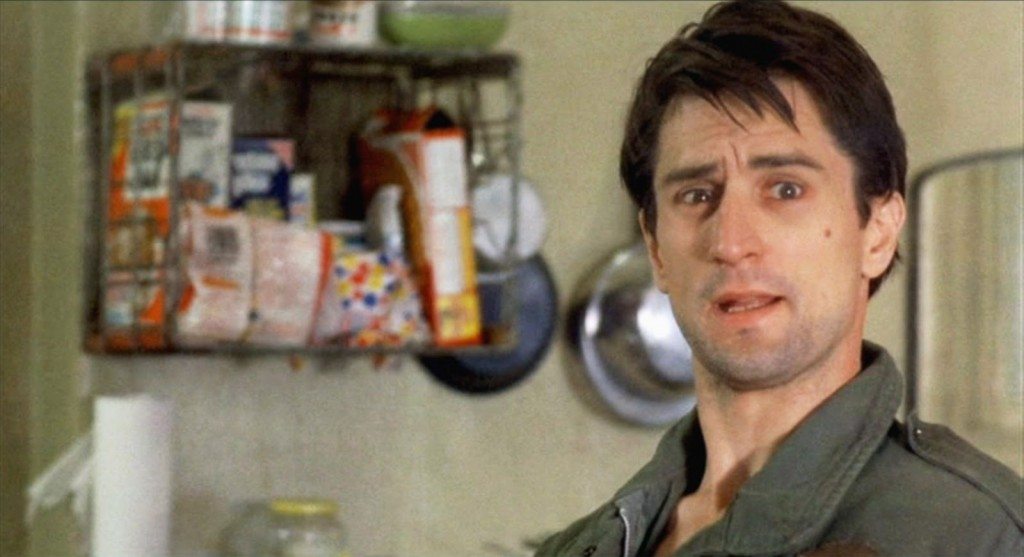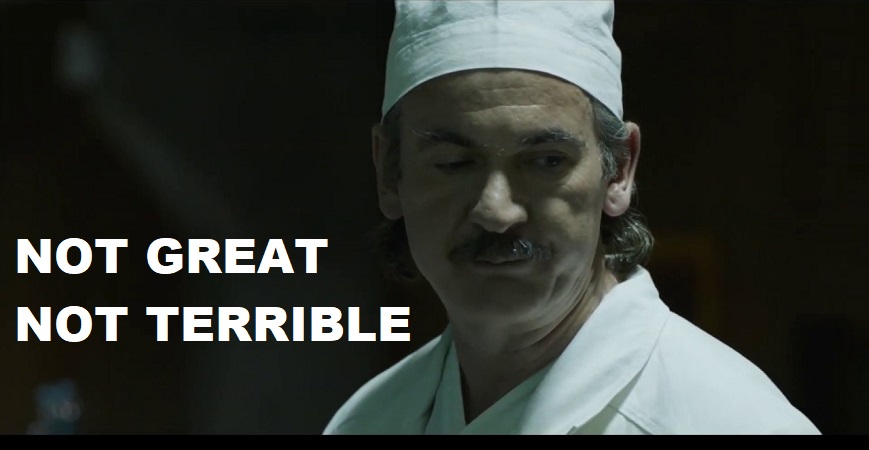Today at bikers-wot-lunch we were discussing the Dead Parrot Sketch.
And Monty Python and the Holy Grail " Just a flesh wound".
What movies / TV are essential viewing to understand cultural references ?
THe Princess Bride is probably the most quotable film of all time
The Blues Brothers
Star Wars
Closer to home - Morecambe and Wise, Dad's Army, 'Allo 'Allo, The Young Ones... the list could be endless
Groundhog Day is the most significant one I can think of, given that the movie reference is actually in the dictionary now!
Top Gun
Depends on the blurred lines between being widely quoted and cultural references.
Would add Blackadder into the list for that.
See also TV adverts as having a longevity beyond the actual ads - "Pea and ham? From a chicken?" being an example.
Deep throat?
Withnail & I
The Italian Job
The Boondock Saints.
Tarrantino films.
Only Fools & Horses
The kids are into Vicar of Dibley at the moment.
See also TV adverts as having a longevity beyond the actual ads
Some turns of phrase are surprisingly old advertising slogans - 'Gone for a Burton' is often used to describe something lost, damaged or to describe someone having some sort of bad fortune. Its from a poster campaign in the early 20th century for Burton ales in which a picture of a famous event would have someone important missing and the phrase 'He's gone for a Burton' underneath to suggest he'd gone to the pub instead. In the second world war it became a euphemism amongst airmen to describe someone lost in action - to refer to the person from the scene that is now absent - and that changed to meaning to how we using it today.
Not used in that way at all - as in people don't think they're quoting anything - is the idea of breakfast being the most important meal of the day - which has no scientific basis at all and is just an old Kelloggs slogan.
I think even ads these days don't have that effect though. TV and Film used to be much more of a shared experience - only a few channels, only one TV in the house, people watched everything together, whether it was kids tv, top of the pops or current affairs people watched it all together in the same room and more broadly we watched it all at the same time. So they way these phrases entered common parlance was through talking about having watched the same TV the night before. Nothing really has that saturation now.
I can't think of an line from an ad or and tv show from say the last 5 years that people would drop into conversion with the presumption that anyone would know what they're quoting
The Fast Show and probably most of Harry Enfields stuff. Fawlty Towers too.
Cool Runnings.
Shawshank Redemption.
Hunt For the Wilderpeople.
Hunt for Red October.
A Bridge Too Far.
Kelly's Heroes.
The Good, The Bad and the Ugly
2001
The Godfather
Pulp Fiction
Coronation Street
Get Carter
Trainspotting.
Pulp Fiction
Or more seriously all 29 Marvel films.
The Simpsons
Airplane.
Whenever I'm asked how I feel, I can't help but reply 'a series of nerve endings sends electrical impulses to my brain, but that's not important right now'
Eyes roll but it's a culturally-ingrained behaviour.
All the presidents men
American werewolf in London
Cry freedom
Carry On Camping.
Blazing Saddles.
Badges? We don't need no steenking badges.
Little bastard shot me in the ass.
Baby please, I am not from Havana.
I shoot with this hand. etc
The Big Lebowski
Enter the Dragon
I’m hoping that The Boys “With great power comes the absolutely certainly you’ll turn in to a right ****” becomes an oft used phrase from here on out.
Blazing Saddles.
Badges? We don’t need no steenking badges.
Treasure of the Sierra Madre should get the credit for this imho
Blackadder.
The young ones.
THe Princess Bride is probably the most quotable film of all time
Back in Web 1.0 days there was a website where people could submit their favourite film quotes. TPB was banned from the site on the grounds that the entire film was quotable.
Airplane.
Whenever I’m asked how I feel, I can’t help but reply ‘a series of nerve endings sends electrical impulses to my brain, but that’s not important right now’
I think you've mangled two quotes there. The first half of that was Jeff Goldblum in a Holsten Pils advert.
😳
I think you're right.
Just shows that I can't accurately remember nearly anything!
Got it.
Although it was both a film and a TV series it was really an increasingly inaccurately described trilogy of five books, being the Hitchhiker's Guide To The Galaxy
Oft quoted on here.
Anyone for a gynnantonix? Or a drink that tastes almost but not quite exactly unlike tea?
Jaws
Italian job
Apocalypse Now gets used in the office a lot (by me), Top Gun not so much. Some Blade Runner, some Platoon, some Full Metal Jacket.
There are bound to be others, but Spaced, Black Books and IT Crowd are heavy hitters.
The Inbetweeners (films and TV series)
Airplane.
Surely you can't be serious?
Although it was both a film and a TV series it was really an increasingly inaccurately described trilogy of five books, being the Hitchhiker’s Guide To The Galaxy
It was 'really' a radio show.
I was talking about DNA just today, the 'lizards' piece seems currently relevant.
https://www.goodreads.com/quotes/162557-it-comes-from-a-very-ancient-democracy-you-see-you
No mention of Aliens yet?
Take off and nuke the entire site from orbit. It's the only way to be sure.
Lots already mentioned.. but I still find myself quoting some Kenny Everett characters.
Plus
Monsters' Inc. and
The Incredibles
Might just be my family those 2!
"I'm watching you Wazowski, always watching."
"I'm not happy Bob"
"Can we do that again?! 😀 " etc
Taxi Driver for definite

Sainsbury's in-house bakery advert. What was the best thing before sliced bread?
Spinal Tap.
The Fast Show still gets quoted without folk realising it, it was massively influential.
I'll get my coat
Does my bum look big in this?
Scorchio
Which was nice.

In addition:
Die Hard.
Open Season.
Allo Allo.
Bueller
What was the best thing before sliced bread?
I’m going for the wheel.
Anchorman
It was ‘really’ a radio show.
**** I'd forgotten that. I'll play the "before my time" card and beg for your forgiveness. 🙁
Pulp Fiction here - every time one of the kids does something clever it's 'check out the big brain on xxxx'
Same with 'Mmmmhhhmmmm, this is a tasty burger!
And 'Pretty please with sugar on top.... do your effin homework/clean your effin room/ get to effin bed.
A few Withnail ones too - eg: any creature in the house (spider, moth, whatever) gets a '****ers alive!'
This one time, at band camp...
I quote The Big Lebowski faaar too much.
From the classics, Casablanca is stuffed with quotable lines
"Asps, very dangerous. You go first"
"Punish him for me, Errol"
Anyone anyone
The Fast Show still gets quoted without folk realising it, it was massively influential.
That's a really good shout.
This one time, at band camp…
I do wonder whether that entered the zeitgeist mostly via people with a poopscoop for Willow.
Catherine Tate? "Does my face look bovvered?"
Red Dwarf? "So, what is it?" (and many, many more.)
Zoolander: blue steel, so hot right now etc.
Boys from the blackstuff "gis us a job, I can do that"
Friday night dinner
They live
They live
One of my favourite films, but I don't often use the bubblegum quote IRL.
I did quote Repo Man incessantly for years, but I wonder if that was just me and a few pals?
Fawlty Towers
Snatch
Lock Stock
Young Ones
If we stop the list there you've got virtually every Scape Family quote imaginable.
To expand more cultural references
Pulp Fiction
Casablanca
Alien and Aliens
Dark Star
Despicable Me
Any 1970s canned beer or cigar adverts
Young Ones
A few years ago, I was in a presentation at work and they were having trouble with Powerpoint / the projector, trying to get a video to play. The head of HR was sat next to me, an older lady and very straight-laced. She quipped complete with Viv's accent, "oh, have we got a video?" I corpsed, it was so unexpected and beautifully timed.
Anyone else can't help but say the word "STEWDENTs" in the style of Paul Calf? Wasn't that Friday Night Live? Plus "Bag o shite!"
Downhill all the way for Coogan since then 😀
Downhill all the way for Coogan since then
Did we go all this way with nobody mentioning Partridge?
Something of an oversight.
Wayne's World
Scorchio
Introduced Sandwich Jr to this in Spain one year. A heavy dose of YouTube later and we spent the rest of the trip looking for Cumulo Nimbus, plus laughing uproariously.
That’s a really good shout.
Surely that should be Nice?
My contribution, The League of Gentlemen "are you local?"
This thread explains why I'm socially inadequate.
Team America
A younger friend once asked me: What you talkin' 'bout Willis?
I responded with: I thought you were too young to have watched Different Strokes!
He was. He got the reference from Family Guy. Which was the only reason he was aware of The Fonz.
Friday night dinner
'S*** on it!' has to be one of my favourites. I was very disappointed when he (RIP Paul Ritter) didn't shout it out in his role in Chernobyl.
Napoleon dynamite
Excuse the grammatical errors in the vid title and there are probably better quality clips out there, but it's a classic.
I lived about 500yds from this scene in the late '70's
Thanks everyone - useful stuff here.
Princess Bride -
Brilliant - yes!
For Scotland I will also add Gregory's Girl, Still Game, and Chewing the Fat.
-----
This is important as yesterday I was chatting to our lovely local Ukrainian refugees (mother and teenage daughter).
Drank tea, shared a Tunnock's teacake and discussed things to see and do near Stirling. A clip from Monty Python and The Holy Grail completely bamboozled them but Doune Castle is now on the must-see list.
I was very disappointed when he (RIP Paul Ritter) didn’t shout it out in his role in Chernobyl.
But his performance did birth an entirely different meme:

Also, anything Superhans from Peep Show
